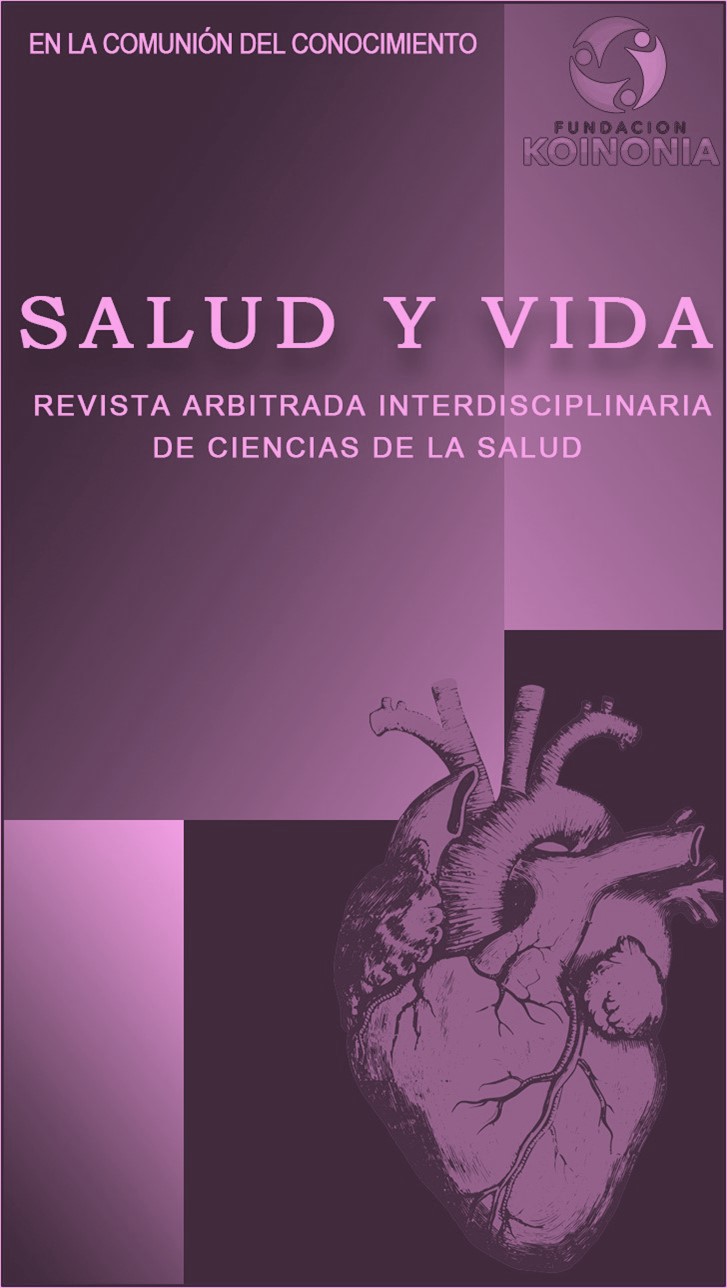Educación en el uso de métodos anticonceptivos en la adolescencia
DOI:
https://doi.org/10.35381/s.v.v8i2.4219Palabras clave:
Anticonceptivos, anticonceptivos femeninos, anticonceptivos masculinos, (Fuente: DeCS)Resumen
Objetivo: Analizar la educación en el uso de métodos anticonceptivos en la adolescencia. Método: Descriptivo documental. Conclusión: La educación en el uso de métodos anticonceptivos durante la adolescencia es un pilar fundamental para la promoción de la salud sexual y reproductiva, siendo crucial para reducir la prevalencia de embarazos no planificados y la exposición a enfermedades de transmisión sexual. Los estudios muestran que factores como la falta de acceso a información adecuada, la influencia cultural y la presión de las parejas obstaculizan la adopción de anticonceptivos.
Descargas
Citas
Idoko CA, Omotowo B, Anyaka C, et al. Opinion and use of contraceptives among medical students of the University of Nigeria, Enugu campus. Afr Health Sci. 2018;18(3):637-644. http://dx.doi.org/10.4314/ahs.v18i3.21
Peltzer K, Pengpid S. Contraceptive non-use and associated factors among university students in 22 countries. Afr Health Sci. 2015;15(4):1056-1064. http://dx.doi.org/10.4314/ahs.v15i4.2
Thao Chia, Perez Miguel A., Thao Tou, Vue Kau. Contraceptive attitudes among hmong young adults in rural california. Rev. Fac. Med. Hum]. 2020;20(2):201-208.
Yang Z, Chen W, Chen W, et al. Factors associated with voluntary HIV counseling and testing among young students engaging in casual sexual activity: a cross-sectional study from Eastern China. BMC Public Health. 2024;24(1):1109. http://dx.doi.org/10.1186/s12889-024-18562-2
Mwamba B, Mayers P, Shea J. Sexual and reproductive health knowledge of postgraduate students at the University of Cape Town, in South Africa. Reprod Health. 2022;19(1):225. http://dx.doi.org/10.1186/s12978-022-01507-6
Asratie MH, Kassie BA, Belay DG. Prevalence of Contraceptive Non-use Due to Husbands/Partners Influence Among Married Women in Ethiopia: A Multilevel Analysis Using Demographic and Health Survey 2016 Data. Front Reprod Health. 2022;4:876497. http://dx.doi.org/10.3389/frph.2022.876497
Borges ALV, Dias ACDS, Ale CCDS. Reproductive autonomy associated with the use of contraceptive methods among reproductive aged women. Rev Gaucha Enferm. 2023;44:e20230072. http://dx.doi.org/10.1590/1983-1447.2023.20230072.en
Sutton MY, Zhou W, Frazier EL. Unplanned pregnancies and contraceptive use among HIV positive women in care. PLoS One. 2018;13(5):e0197216. http://dx.doi.org/10.1371/journal.pone.0197216.
Ruiz-Algueró M, Izquierdo R, Suárez-García I, Moreno C, Alejos B, Rava M, Moreno S, Montero Alonso M, Gutiérrez F, Gutierrez Cuellar I, Curran A, Hernando V, Jarrín I; Cohort of the Spanish HIV/AIDS Research Network (CoRIS). Unplanned pregnancies and social and partner support during pregnancy in Spanish women living with HIV. HIV Med. 2023;24(6):727-737. http://dx.doi.org/10.1111/hiv.13469.
Hohmann-Marriott BE. Unplanned pregnancies in New Zealand. Aust N Z J Obstet Gynaecol. 2018;58(2):247-250. http://dx.doi.org/10.1111/ajo.12732.
Daccò V, Alicandro G, Trespidi L, Gramegna A, Blasi FA. Unplanned pregnancies following the introduction of elexacaftor/tezacaftor/ivacaftor therapy in women with cystic fibrosis. Arch Gynecol Obstet. 2023;308(5):1657-1659. http://dx.doi.org/10.1007/s00404-023-07153-y.
Horvath S, Schreiber CA. Unintended Pregnancy, Induced Abortion, and Mental Health. Curr Psychiatry Rep. 2017;19(11):77. http://dx.doi.org/10.1007/s11920-017-0832-4
Niemeyer Hultstrand J, Tydén T, Jonsson M, Målqvist M. Contraception use and unplanned pregnancies in a peri-urban area of eSwatini (Swaziland). Sex Reprod Healthc. 2019;20:1-6. http://dx.doi.org/10.1016/j.srhc.2019.01.004.
Bowring AL, Schwartz S, Lyons C, Rao A, Olawore O, Njindam IM, Nzau J, Fouda G, Fako GH, Turpin G, Levitt D, Georges S, Tamoufe U, Billong SC, Njoya O, Zoung-Kanyi AC, Baral S. Unmet Need for Family Planning and Experience of Unintended Pregnancy Among Female Sex Workers in Urban Cameroon: Results From a National Cross-Sectional Study. Glob Health Sci Pract. 2020;8(1):82-99. http://dx.doi.org/10.9745/GHSP-D-19-00330.
Mazibuko NE, Saruchera M, Okonji EF. A Qualitative Exploration of Factors Influencing Non-Use of Sexual Reproductive Health Services among University Students in South Africa. Int J Environ Res Public Health. 2023;20(3):2418. http://dx.doi.org/10.3390/ijerph20032418
Publicado
Cómo citar
Número
Sección
Licencia
Derechos de autor 2024 Niurka Mallerly Castillo-Espinales, Dayana Jamileth Toapanta-Chugchilan, Brithany Maily Cantos-Andrade, Julio Jesús Vargas-Peña

Esta obra está bajo una licencia internacional Creative Commons Atribución-NoComercial-CompartirIgual 4.0.
CC BY-NC-SA : Esta licencia permite a los reutilizadores distribuir, remezclar, adaptar y construir sobre el material en cualquier medio o formato solo con fines no comerciales, y solo siempre y cuando se dé la atribución al creador. Si remezcla, adapta o construye sobre el material, debe licenciar el material modificado bajo términos idénticos.
OAI-PMH: https://fundacionkoinonia.com.ve/ojs/index.php/saludyvida/oai.









